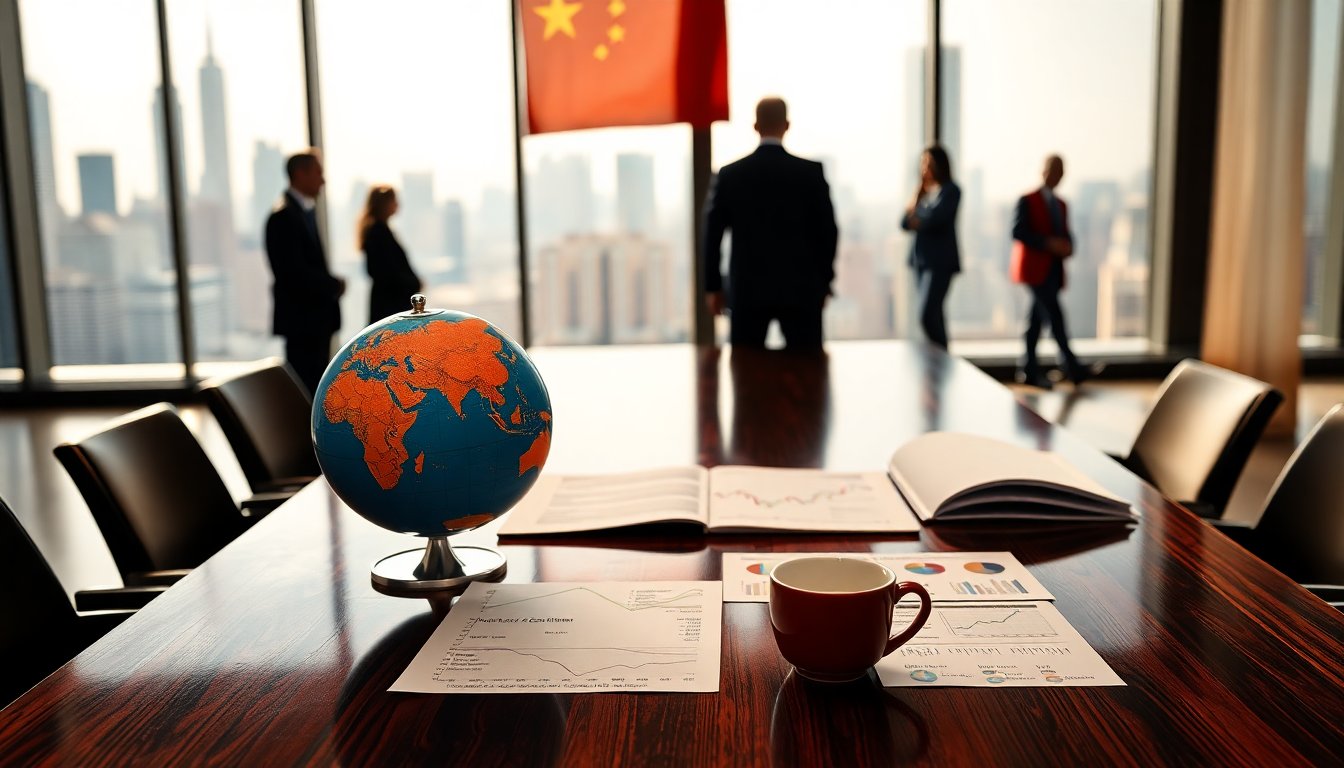Table of Contents
The relationship between the United States and China has significant implications for global stability. Recent developments indicate a critical shift from aggressive posturing to a more accommodating dialogue, fueled by economic interdependence.
Emerging Trends in US-China Relations
In response to escalating tensions, both nations are now engaged in a pragmatic and constructive dialogue, as described by leading Chinese media outlets. This shift reflects an understanding that cooperation is essential, highlighting a transformative phase in their interactions. Despite notable strategic rivalry, the intricate web of mutual dependencies between the two powers is increasingly evident.
Economic Interdependence
The economic landscape plays a crucial role in shaping US-China relations. Following former President Trump’s reemergence in the political arena, there are growing concerns about renewed attempts to assert American dominance. The imposition of high tariffs on Chinese goods and imports from various allies was intended to reinforce US economic strength. However, this strategy has produced complex repercussions.
For example, the US excels in high-tech sectors, particularly in semiconductor design, while China has gained control over key segments of the global supply chain and is advancing in green technology. This economic imbalance requires a cautious approach; a full-scale conflict could yield devastating outcomes for both nations.
Recent Developments in Pakistan
In another region of heightened geopolitical tension, Pakistan recently experienced a tragic aerial bombing that resulted in the deaths of at least 23 civilians, including women and children. This incident occurred in a remote area where militant activities have intensified, raising concerns about the effectiveness and intent of military operations.
Military Operations and Civilian Casualties
Opposition leaders have criticized the military, claiming that the bombing was part of a flawed counterterrorism strategy. Iqbal Afridi, a member of the National Assembly, stated that military aircraft were responsible for the civilian casualties. Other political figures echoed this sentiment, describing the incident as a serious violation against unarmed citizens.
As the Pakistani Taliban (TTP) escalate their violent campaign against security forces, a strategic reassessment of military operations is becoming increasingly necessary. The growing public discontent regarding these tactics underscores the delicate balance between ensuring security and safeguarding civilian lives.
Shifting Public Sentiment in Taiwan
Meanwhile, in Taiwan, public opinion is changing in the face of increasing pressure from China. Recent surveys indicate that a majority of citizens prefer dialogue over confrontation, reflecting concerns about the current administration’s management of relations with the mainland. This shift is significant, especially given Beijing’s heightened military posturing.
Leadership Challenges and Public Expectations
As William Lai Ching-te navigates his leadership, the evolving public sentiment presents notable challenges. Voter skepticism regarding his ability to manage Taiwan’s sensitive relationship with China is growing. Survey results reveal a rapid change in perspective, with many citizens advocating for continued discussions instead of escalating tensions.
In light of these dynamics, a recent visit by US lawmakers to China highlights efforts to restore military communication channels that had been severed. This visit, the first of its kind since 2019, aims to enhance understanding and recalibrate the relationship on multiple fronts, reflecting a mutual desire for stability.
ASEAN’s Economic Response
In response to escalating tensions, both nations are now engaged in a pragmatic and constructive dialogue, as described by leading Chinese media outlets. This shift reflects an understanding that cooperation is essential, highlighting a transformative phase in their interactions. Despite notable strategic rivalry, the intricate web of mutual dependencies between the two powers is increasingly evident.0
In response to escalating tensions, both nations are now engaged in a pragmatic and constructive dialogue, as described by leading Chinese media outlets. This shift reflects an understanding that cooperation is essential, highlighting a transformative phase in their interactions. Despite notable strategic rivalry, the intricate web of mutual dependencies between the two powers is increasingly evident.1
In response to escalating tensions, both nations are now engaged in a pragmatic and constructive dialogue, as described by leading Chinese media outlets. This shift reflects an understanding that cooperation is essential, highlighting a transformative phase in their interactions. Despite notable strategic rivalry, the intricate web of mutual dependencies between the two powers is increasingly evident.2


